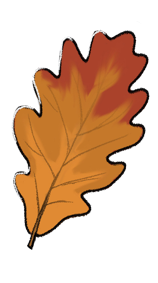Aquatic Diversity is an important component of agricultural biodiversity. The conservation and sustainable use of local aquatic ecosystems, ponds, rivers, coastal commons by artisanal fisherfolk and smallholder farmers is important to the survival of both humans and the environment. Since aquatic organisms, including fish, provide much of our food supply and income for coastal peoples, it is critical that fisherfolk and smallholder farmers have genetic reserves and sustainable ecosystems to draw upon as aquaculture and marine fisheries management continue to evolve.
More information
More information
Related categories 1
Sites 8
Provides definitions of types of aquatic ecosystems commonly used by capture fisheries and aquaculture in which aquatic biodiversity needs to be maintained; also refers to policies such as Code of Conduct on Responsible Fisheries, FAO programmes and links to key papers and related sites.
Call by Civil Society for more research on sustainable productive ecosystems at watershed, inland waters and marine levels and there to be no GMOs nor IPRs in Aquaculture and Fisheries. Links to the Summit website and report.
A relational database with information to cater to different professionals such as research scientists, fisheries managers, and zoologists. FishBase on the web contains practically all fish species known to science.
Paper on aquatic diversity from "Seedling" the quarterly journal of Genetic Resources Action International (GRAIN). Covers issues on the industrialisation of fishing and aquaculture that are destroying aquatic ecosystems and fisherpeoples' rights.
This leading international think tank on artisanal fisheries, aquatic diversity and fishworkers, focuses on the majority, small-scale, artisanal sector. Links to relevant papers and all ICSF publications including SAMUDRA, their quarterly journal, and Yemaya, ICSF's newsletter on Gender and Fisheries.
Non-profit organisation site with information about reducing agriculture's impacts on endangered salmon and steelhead habitat in the Pacific Northwest. Links to concerned organisations promoting GM-free products in Oregon.
The scientific 'home' of the Coelacanth. Information on programmes and research initiatives. Packed with databases and 10,000 photos on southern African fish species. Institute formerly known as the JLB Smith Institute of Ichthyology.
An international scientific and technical center, previously known as ICLARM and part of the CGIAR. Site has excellent content on all fisheries and aquatic ecosystem issues plus links to major resources including 'Fishbase' - the global aquatic organisms digital resource.
A relational database with information to cater to different professionals such as research scientists, fisheries managers, and zoologists. FishBase on the web contains practically all fish species known to science.
Paper on aquatic diversity from "Seedling" the quarterly journal of Genetic Resources Action International (GRAIN). Covers issues on the industrialisation of fishing and aquaculture that are destroying aquatic ecosystems and fisherpeoples' rights.
Provides definitions of types of aquatic ecosystems commonly used by capture fisheries and aquaculture in which aquatic biodiversity needs to be maintained; also refers to policies such as Code of Conduct on Responsible Fisheries, FAO programmes and links to key papers and related sites.
The scientific 'home' of the Coelacanth. Information on programmes and research initiatives. Packed with databases and 10,000 photos on southern African fish species. Institute formerly known as the JLB Smith Institute of Ichthyology.
This leading international think tank on artisanal fisheries, aquatic diversity and fishworkers, focuses on the majority, small-scale, artisanal sector. Links to relevant papers and all ICSF publications including SAMUDRA, their quarterly journal, and Yemaya, ICSF's newsletter on Gender and Fisheries.
An international scientific and technical center, previously known as ICLARM and part of the CGIAR. Site has excellent content on all fisheries and aquatic ecosystem issues plus links to major resources including 'Fishbase' - the global aquatic organisms digital resource.
Call by Civil Society for more research on sustainable productive ecosystems at watershed, inland waters and marine levels and there to be no GMOs nor IPRs in Aquaculture and Fisheries. Links to the Summit website and report.
Non-profit organisation site with information about reducing agriculture's impacts on endangered salmon and steelhead habitat in the Pacific Northwest. Links to concerned organisations promoting GM-free products in Oregon.

Category editor:
pmulvany
Last update:
July 4, 2019 at 16:29:13 UTC

Check out
Sports: Golf: Courses: North America: United States: Massachusetts
- Recently edited by merlin1
- Recently edited by merlin1